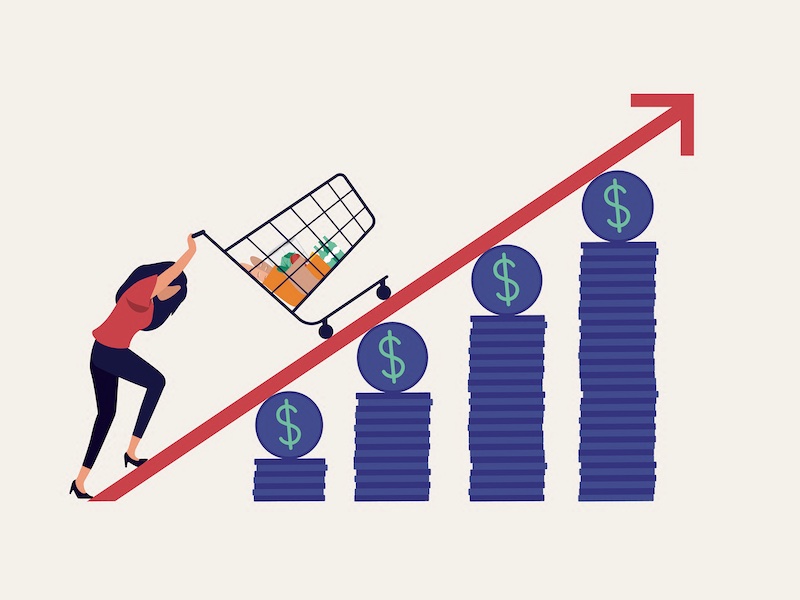Introduction
Inflation is one of the most talked-about issues in any economy. It refers to the general rise in the prices of goods and services over time, leading to a decline in the purchasing power of money. In simple terms, when inflation occurs, the same amount of money buys fewer goods than before. While mild inflation can indicate a growing economy, high or unpredictable inflation can cause serious economic instability. It is typically measured using a price index, such as the Consumer Price Index (CPI), which tracks the price changes of a “basket” of common goods and services.
Explore the meaning of inflation, its causes and it impacts the nation’s economy from decrease in purchasing power to reducing savings and it possible solution.
Causes of Inflation
Several factors can lead to inflation in a country’s economy, including:
- Demand Pull Inflation
This occurs when the demand for goods and services exceeds the supply, pushing prices upward. It usually happens during periods of economic growth when people have more money to spend. - Cost Push Inflation
When production costs increase (for example, due to higher wages or rising prices of raw materials), producers pass these costs on to consumers in the form of higher prices. - Monetary Factors
Excessive money supply in the economy, often caused by government borrowing or overprinting of money, can lead to inflation as too much money chases too few goods.
- Imported Inflation
A rise in the prices of imported goods especially fuel or raw materials can cause domestic prices to increase, particularly in import-dependent countries.
Effects of Inflation on the Economy
- Decrease in Purchasing Power
Inflation reduces the value of money, meaning consumers can buy fewer goods and services with the same amount of money. This particularly affects low- and middle-income earners.
- Increased Cost of Living
As prices of essential goods and services rise, the cost of living increases. This makes it harder for families to afford necessities like food, healthcare, and education.
- Uncertainty in Business Environment
High inflation creates uncertainty about future costs and prices, making it difficult for businesses to plan and invest. Investors often become cautious, leading to slower economic growth.
- Income Inequality
Inflation tends to hurt wage earners and pensioners who live on fixed incomes, while those with assets such as real estate or stocks may benefit as asset values rise.
- Interest Rate Fluctuations
Central banks often raise interest rates to control inflation. While this helps stabilize prices, it can also make borrowing more expensive for businesses and individuals.
- Reduced Savings
When inflation is high, the value of money saved decreases over time unless it earns an interest rate higher than the inflation rate. This discourages savings and encourages spending.
Possible Solutions to Inflation
- Monetary Policy:
Central banks can control inflation by regulating money supply and adjusting interest rates. - Fiscal Policy:
Governments can reduce public spending and borrowing to control inflationary pressures. - Encouraging Production:
Increasing the supply of goods and services through industrial and agricultural development helps balance demand and supply. - Import Substitution:
Reducing dependence on imported goods can minimize the effects of imported inflation.
Conclusion
Inflation is a natural part of every economy, but when left unchecked, it can harm growth, investment, and living standards. A stable and moderate level of inflation is essential for sustainable economic development. Therefore, governments and financial institutions must work together to maintain price stability while encouraging economic growth.

